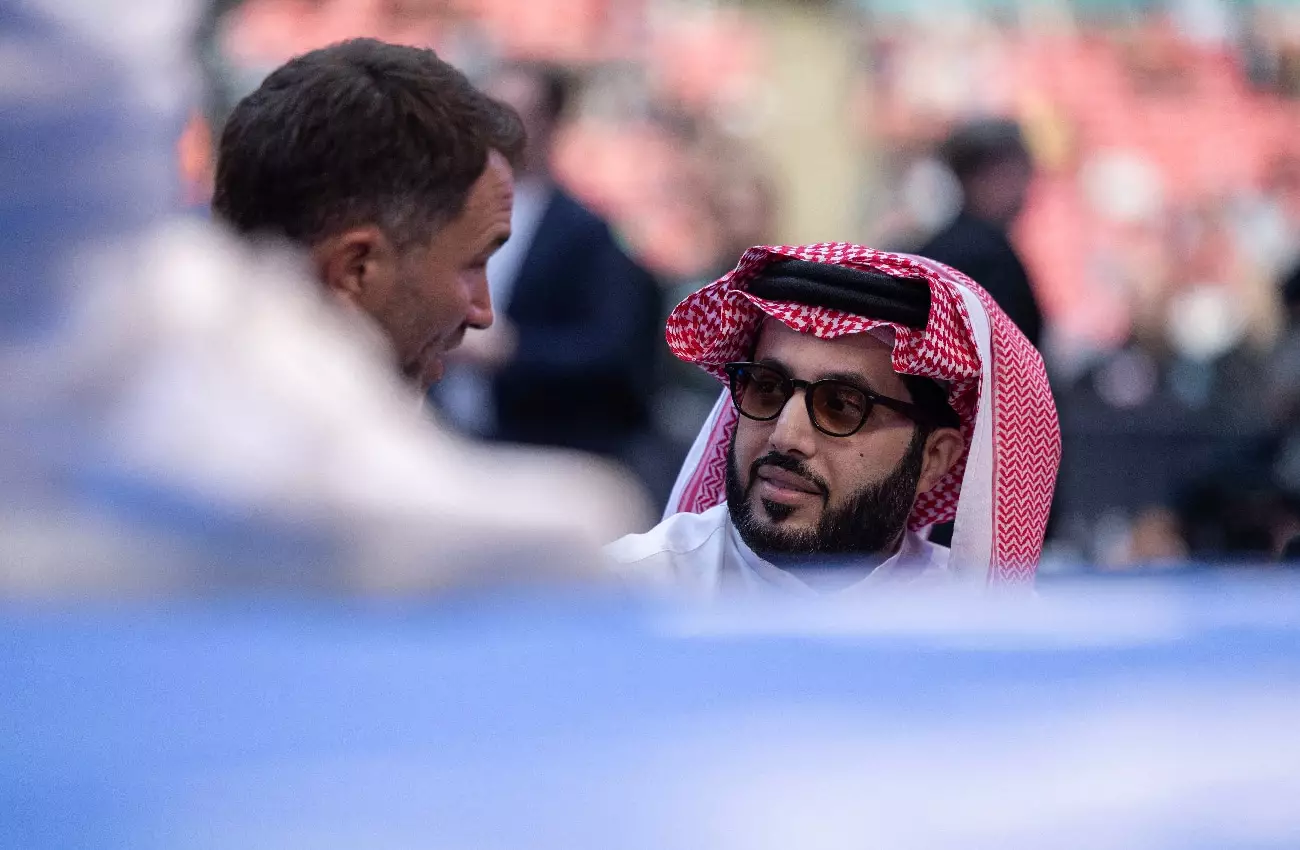The boxing world is abuzz with outrage over Turki Alalshikh’s recent decision not to pursue a bid for the heavy-hitting matchup between David Benavidez and Dmitry Bivol. Fans, many of whom were looking forward to this electrifying showdown, feel disappointed that the fight’s potential has been sidelined. Alalshikh’s reasoning, articulated in his comments to The Ring, raises eyebrows and fuels speculation about his strategic vision, particularly regarding the future of Bivol, the reigning light heavyweight champion.
Turki’s Strategic Dilemma
Alalshikh, a significant player in boxing promotions, creates both excitement and skepticism with his statements. His assertion that “Bivol knows who delivered for him and who hasn’t” suggests he believes past fighters have contributed to Bivol’s current status but leaves much to be desired in terms of clarity around future matchups. This vagueness is stirring frustration among fans who see Bivol as a fighter capable of creating compelling narratives in the ring, notably against an undefeated Benavidez, known as ‘The Mexican Monster.’
This unwillingness to bid on an eagerly anticipated fight indicates broader issues at play, including potential conflicts arising from Alalshikh’s ties with other high-profile boxers, particularly Canelo Alvarez. Alalshikh’s comments imply a desire to steer Bivol toward a trilogy with Artur Beterbiev as a priority over a fresh challenge against Benavidez, which might inadvertently diminishes Bivol’s standing in the sport.
Pitfalls of the Control Game
The backdrop of this unfolding drama is Alalshikh’s management of Canelo, which appears to put him in a conflicting position. Should Benavidez face off against Bivol and win, it could obliterate Alalshikh’s hopes for creating tantalizing matchups with Bivol contending for glory. Fans rightly question whether Alalshikh is risking the sport’s integrity for the sake of maintaining control over his fighters. The consequences of such a strategy could lead to stagnation in an increasingly dynamic environment, leaving fans without the fights they crave.
Alalshikh’s tone of advising Bivol, warning him to “not be late,” implies urgency yet simultaneously dismisses the potential for a monumental clash with Benavidez. This relay of mixed signals highlights a business approach steeped in financial strategy over fan engagement, ultimately undermining the sport’s allure.
A Fork in the Road for Boxing’s Future
Turki Alalshikh’s position could lead to a severe backlash not only against his choices but also potentially against the boxing landscape itself. The disappointment of fans over a likely matchup that could enthrall audiences stands in stark contrast to the glittering façade of match promotions. Genuine engagement between fighters is what fans desire, and Alalshikh’s current trajectory may prevent stellar opportunities from materializing.
While Canelo Alvarez and Terence Crawford remain heavyweight names capable of drawing large crowds, it’s evident that neglecting fights like Bivol vs. Benavidez could result in a larger void in the sport. The clashing interests of promoters might steer decisions that benumb competition rather than enrich it. This strikes at the heart of what makes boxing compelling—the thrill of rivalry, the unpredictable outcomes, and the chance for climactic showdowns.
It’s a pivotal moment for Alalshikh and his cohorts; the boxing community is watching closely, questioning whether the financial calculus may lead to a missed opportunity for unforgettable bouts. The future of boxing could hinge on how stakeholders react to the pressures of both profit and passion.


Leave a Reply